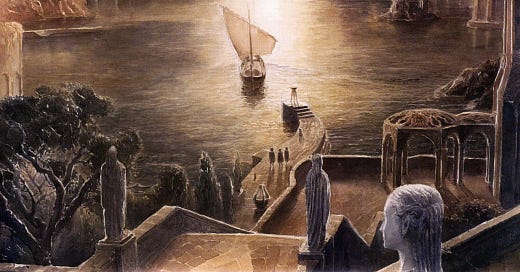It's a big word, easily abused.
As I've chosen to describe the feature film I'm working on as 'mythic', and since I've promised to write you reviews of 'mythic' books and films, it needs defining:
'Mythic' means timeless and symbolic, drawn from a primeval reality which escapes the everyday, ordinary world - but remains, psychologically, just as real.
Yes, yes. Elves and wizards don't actually exist.
Myths adapt humanity's cultural and psychological experiences into stories - not just any stories, the ones which stay relevant for all time.
As Joseph Campbell put it, 'mythology is psychology misread as biography, history and cosmology.' He was inspired by Carl Jung, who saw myths as expressions of unconscious processes and archetypal urges. Ted Hughes believed that mythology brings us balance by reconciling the conflict between our inner and outer worlds.
Now, this can go too far.
Adolf Hitler drew ideas about Germanic racial supremacy from mythology; Thomas Mann denounced in 1936 the Nazi 'worship of the unconscious' that 'knows no values, no good or evil, no morality.'
Jordan Peterson uses myth to spout stuff like: 'Order is the white, masculine serpent; Chaos, its black, feminine counterpart' - in an effort to justify patriarchal norms.
But myths shouldn't establish any laws, nor promote any political ideologies.
Modern abuse does not ruin or rule out mythology for the rest of us, who can be interested in myths for aesthetic and psychological reasons.
The fantasies expressed in mythic stories spring from our wildest, most revealing dreams. Myths take the things that matter most to us and make them magical.
To close with the king, J. R. R. Tolkien: myths ‘open a door on Other Time - passing through, we can stand outside our own time, outside Time itself, maybe.’
They’re also very entertaining.
That's a lot of pressure, Xan, to put on your debut ‘mythic’ feature film.
Copyright: Alan Lee - Grey Havens, from The Lord of the Rings.




